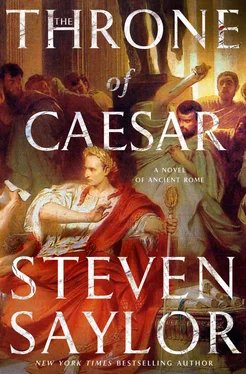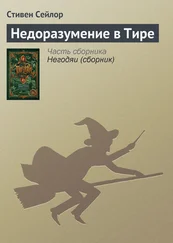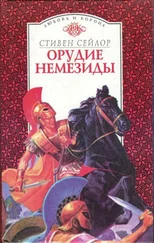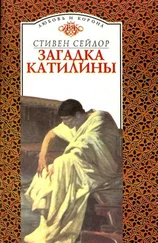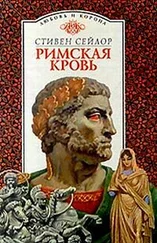Стивен Сейлор - The Throne of Caesar
Здесь есть возможность читать онлайн «Стивен Сейлор - The Throne of Caesar» весь текст электронной книги совершенно бесплатно (целиком полную версию без сокращений). В некоторых случаях можно слушать аудио, скачать через торрент в формате fb2 и присутствует краткое содержание. Год выпуска: 2018, Издательство: St. Martin's Press, Жанр: Исторический детектив, на английском языке. Описание произведения, (предисловие) а так же отзывы посетителей доступны на портале библиотеки ЛибКат.
- Название:The Throne of Caesar
- Автор:
- Издательство:St. Martin's Press
- Жанр:
- Год:2018
- ISBN:нет данных
- Рейтинг книги:5 / 5. Голосов: 1
-
Избранное:Добавить в избранное
- Отзывы:
-
Ваша оценка:
- 100
- 1
- 2
- 3
- 4
- 5
The Throne of Caesar: краткое содержание, описание и аннотация
Предлагаем к чтению аннотацию, описание, краткое содержание или предисловие (зависит от того, что написал сам автор книги «The Throne of Caesar»). Если вы не нашли необходимую информацию о книге — напишите в комментариях, мы постараемся отыскать её.
The Throne of Caesar — читать онлайн бесплатно полную книгу (весь текст) целиком
Ниже представлен текст книги, разбитый по страницам. Система сохранения места последней прочитанной страницы, позволяет с удобством читать онлайн бесплатно книгу «The Throne of Caesar», без необходимости каждый раз заново искать на чём Вы остановились. Поставьте закладку, и сможете в любой момент перейти на страницу, на которой закончили чтение.
Интервал:
Закладка:
I decided to start with the man about whom I knew the least and about whom I was most curious: Spurinna, the Etruscan haruspex who had been made a senator by Caesar. It was in his role as a diviner that Spurinna had delivered the warning to Caesar that he would be in danger until the middle of Martius. Meto had told me where Spurinna lived.
Dawn was too early to call on a man of such importance, so I bided my time for an hour or so before I set out, wearing my toga and taking Davus for protection. As I was stepping out the front door, Bethesda appeared, still in dishabille and looking more desirable than any women in Rome half her age. She asked where we were off to.
“Tending to some senatorial business,” I told her, not entirely a lie, at which she seized my shoulders and gave me a long kiss that took my breath away.
As we set off down the street, Davus looked at me sidelong and made a low whistle that broke into a knowing grin. “Diana was the same, last night,” he confided. “You should become a senator every day!”
Spurinna lived in a rather grand house on the Aventine Hill. An o bsequious slave admitted us to an exquisitely furnished reception room, then scurried off to inform his master. The floor was paved with geometric mosaics and the wall panels were alternately red and orange. For decoration there were some very fine pieces of terra-cotta sculpture executed in the old Etruscan style that collectors find so desirable—a smiling man and woman, almost life size, reclining together on a couch as if to dine; a smaller piece that depicted two dancers with open arms looking skyward; and at the center of the room, set atop a black marble pedestal, a small but exquisite statue of a mounted warrior wearing a three-horned helmet.
“Haruspicy must be a profitable business,” said Davus, following my gaze.
“Perhaps. But according to Cicero, Spurinna comes from a very old and distinguished Etruscan family. New Man he may be, but there’s likely to be an ancestral fortune. These terra-cotta pieces may be family heirlooms.”
“So they are,” said a reedy voice with the lilting accent common to those who come from the more northerly Etruscan cities, farthest from Rome. “Welcome to my home, Gordianus.”
Spurinna was dressed neither in a senatorial toga nor in the costume of a haruspex, but in an elegantly tailored tunic of pale linen cinched at his narrow waist with a thin leather belt. He was completely bald but had a long, very thick beard mingling silver and black. There was something disconcerting about his face. I realized that his dark eyes and eyebrows were not symmetrical, with one side higher than the other, a peculiarity that created odd expressions.
“Thank you,” I said. “This is my son-in-law, Davus. I don’t think we’ve met before.”
“But I know who you are. Just as you must know who I am.”
I nodded. “We have that in common, that each has knowledge of the other. But we have something else in common.”
“Do we?”
“Caesar made you a senator, did he not?”
“Yes, to the dismay of some, but to the delight of my family. ”
“I can say the same. Or rather, I’ll be able to say so, a few days from now.”
Spurinna gave me a keen look. “Are you saying that Caesar is making you a senator?” Spoken without emotion, the question gave no clue as to what he might feel about the matter.
“Yes. On the Ides.”
Spurinna raised an eyebrow, which on his face had an effect opposite that of most people, for it brought his features into alignment and erased any hint of irony. He was a hard man to read. “How interesting. So much is likely to happen on the Ides.”
“What do you mean?”
“Come, Gordianus. You will have heard about my warning to Caesar, perhaps from that son of yours, who happened to be present when I conveyed the omen divined from the sacrifice.”
“You warned Caesar of a threat hanging over him. You told him to be careful for the next thirty days.”
“Exactly. The period of greatest danger will expire just after the Ides.”
“What if you’re wrong?”
Spurinna looked down a hallway toward a portico where a patch of morning sunlight had appeared. “Come, let’s talk in the garden. I think today will be warmer than yesterday.”
There were more terra-cotta statues in the garden. We followed him to a pair of benches close to an image of the goddess Turan, said by some to be the same as the Roman Venus, despite the wings that sprouted from her back. Spurinna and I sat, while Davus leaned against a pillar.
“If the Ides should come and go and nothing untoward befalls Caesar,” said Spurinna, “I shall be delighted, of course. Haruspicy is not an exact science. Interpreting the divine signs is a tricky business even for the most experienced practitioner, like myself. Or it might be that Caesar will escape the threat precisely because of my warning, no matter that he scoffs at it. Who knows what choices Caesar will have made in light of my divination, knowingly or not—choices that will have steered him away from danger?”
“I see your point. If the warning successfully protects Caesar, then the threat will remain unseen, and there’ll be no proof of the divination’s accuracy. Perhaps you might explain that conundrum to Cicero. He’s writing a treatise on divination.”
Spurinna snorted. “And how could he possibly be qualified to do that? Is that why you’re here? Did he send you to feel me out about contributing to his impious efforts?”
“No. I wasn’t sent by Cicero. I mention him and his work only because I happened to see him yesterday.”
“And what does that old crow make of your elevation to the Senate?”
“Actually, he doesn’t yet know. Or at least, he didn’t know when I saw him. And neither did I.”
“So this has only just happened?”
“I was told by Caesar yesterday.”
“Ah, that explains why I’m only now learning about it. I’m usually abreast of all developments surrounding the Dictator, even those of little consequence.”
That certainly puts me in my place, I thought. “Are you so knowledgeable because of your connection with the Dictator’s wife?”
Again I was frustrated when I tried to read his expression, but his voice sounded vaguely amused. “Calpurnia has come to rely on me, yes, and I see her often. In matters of divination she’s more devout than her husband. Such is frequently the case. Women are more sensitive, more receptive than are men to divine manifestations.”
“Yet only men practice haruspicy.”
“Women have their own ways of divining, largely outside the control or the knowledge of the state, or of men in general. Conversely, the divination of men is regulated, with ranks and rules, priesthoods and colleges. There are exceptions. The women who become Vestals are very much part of the state religion. And undoubtedly there are men who in secret practice sorcery, just as many, perhaps most—perhaps all—women do. But you must know all about such things, eh, Finder? Your career must have brought you into contact with many a seer and diviner.”
“True. I happened to have met the haruspex who preceded you as Calpurnia’s confidant, that fellow Porsenna, not long before he met his untimely end.” Did I see a frown on his lopsided face? “I should think the haruspex who dies of violence is probably not the best practitioner of his craft,” I added. “Unlike yourself, I’m sure.”
“Indeed. My personal divinations indicated that I would have unexpected visitors today. That certainly describes you and your son-in-law, Finder. And though you are most certainly welcome, I’m still unaware of the purpose of your visit.”
I wanted to see with my own eyes the man who publicly warned Caesar of a threat hanging over him, I thought. I wanted to hear you speak, watch you move, observe your dress and the place where you live. But what I said was: “The reason is quite simple. I need to acquire a new toga to suit my new rank, and I have no idea where to make such a purchase, especially on such short notice. I mentioned this in passing to my son Meto, and he said, ‘Why don’t you ask Spurinna? He acquired his senatorial toga not that long ago, and everyone knows he’s a man of impeccable taste.’” I seldom resorted to outright lying, but this untruth seemed harmless enough, and Spurinna would never doubt it. Men who dressed as elegantly as he did, and furnished their homes with such fine works of art, never question a compliment.
Читать дальшеИнтервал:
Закладка:
Похожие книги на «The Throne of Caesar»
Представляем Вашему вниманию похожие книги на «The Throne of Caesar» списком для выбора. Мы отобрали схожую по названию и смыслу литературу в надежде предоставить читателям больше вариантов отыскать новые, интересные, ещё непрочитанные произведения.
Обсуждение, отзывы о книге «The Throne of Caesar» и просто собственные мнения читателей. Оставьте ваши комментарии, напишите, что Вы думаете о произведении, его смысле или главных героях. Укажите что конкретно понравилось, а что нет, и почему Вы так считаете.
